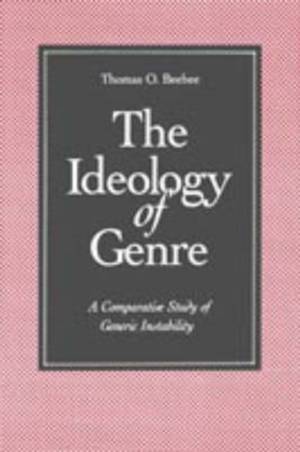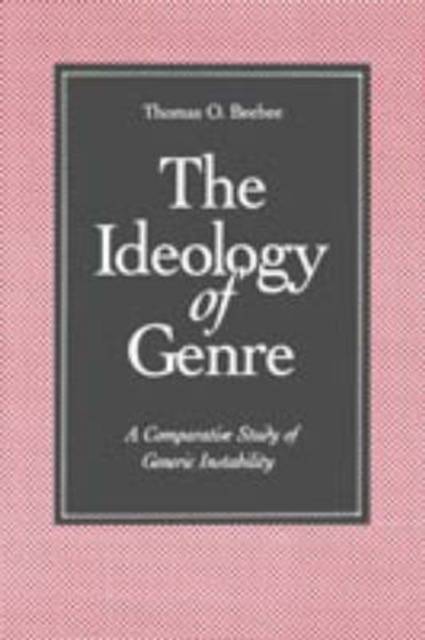
- Retrait gratuit dans votre magasin Club
- 7.000.000 titres dans notre catalogue
- Payer en toute sécurité
- Toujours un magasin près de chez vous
- Retrait gratuit dans votre magasin Club
- 7.000.0000 titres dans notre catalogue
- Payer en toute sécurité
- Toujours un magasin près de chez vous
The Ideology of Genre
A Comparative Study of Generic Instability
Thomas O BeebeeDescription
In a series of comparative essays on a range of texts embracing both high and popular culture from the early modern era to the contemporary period, The Ideology of Genre counters both formalists and advocates of the "death of genre," arguing instead for the inevitability of genre as discursive mediation. At the same time, Beebee demonstrates that genres are inherently unstable because they are produced intertextually, by a system of differences without positive terms. In short, genre is the way texts get used. To deny that genres exist is to deny, in a sense, the possibility of reading; if genres exist, on the other hand, then they exist not as essences but as differences, and thus those places within and between texts where genres "collide" reveal the connections between generic status, interpretive strategy, ideology, and the use-value of language.
Spécifications
Parties prenantes
- Auteur(s) :
- Editeur:
Contenu
- Nombre de pages :
- 312
- Langue:
- Anglais
Caractéristiques
- EAN:
- 9780271025704
- Date de parution :
- 15-09-94
- Format:
- Livre broché
- Format numérique:
- Trade paperback (VS)
- Dimensions :
- 150 mm x 229 mm
- Poids :
- 430 g

Les avis
Nous publions uniquement les avis qui respectent les conditions requises. Consultez nos conditions pour les avis.






